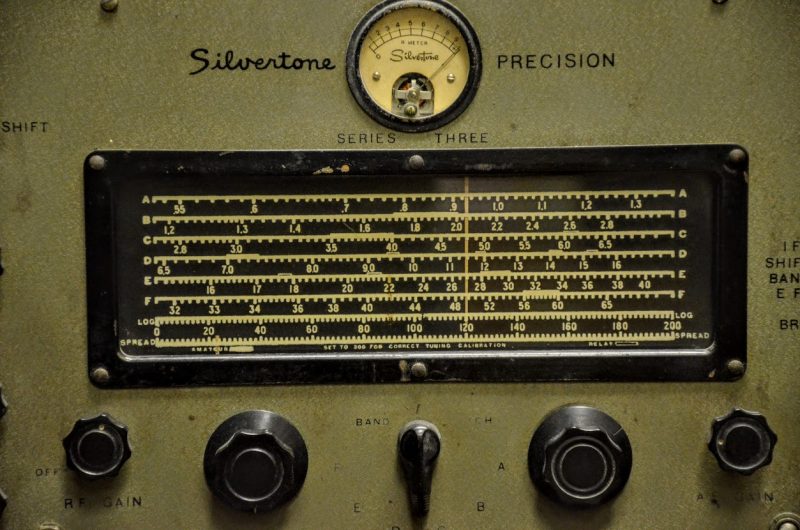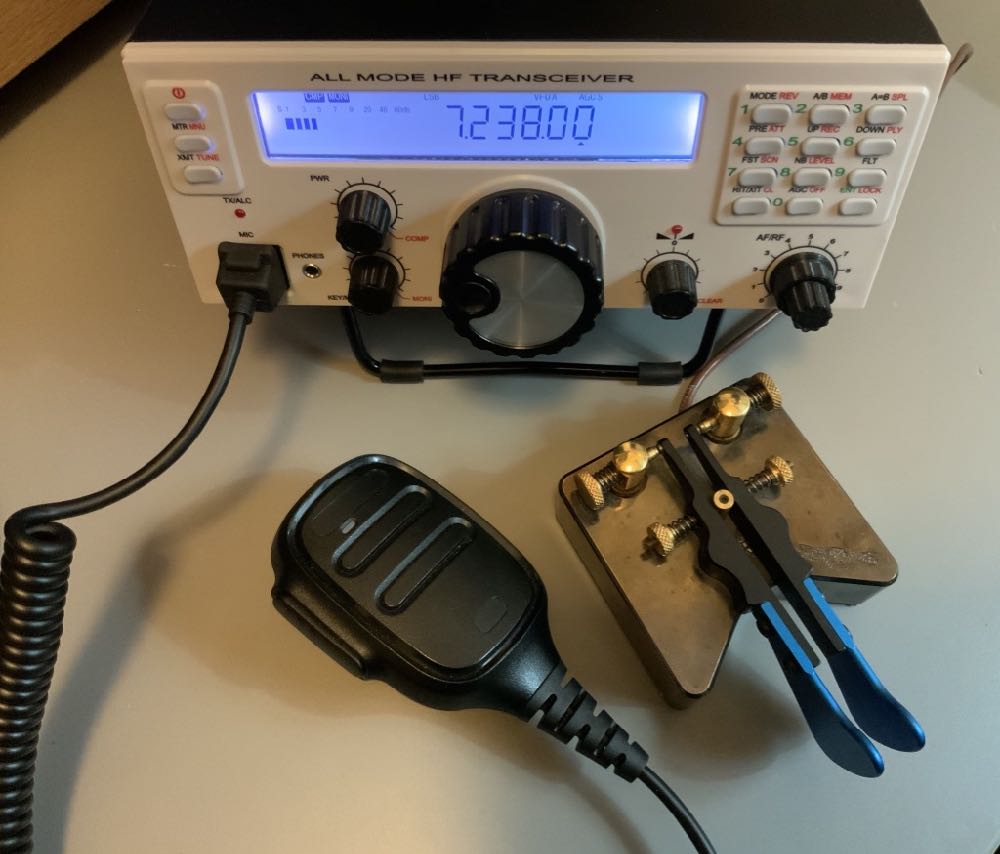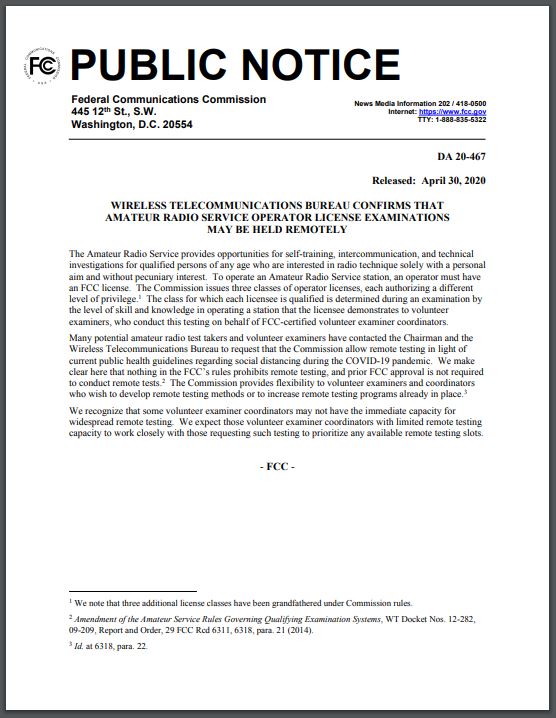Radio Waves: Stories Making Waves in the World of Radio
Because I keep my ear to the waves, as well as receive many tips from others who do the same, I find myself privy to radio-related stories that might interest SWLing Post readers. To that end: Welcome to the SWLing Post’s Radio Waves, a collection of links to interesting stories making waves in the world of radio. Enjoy!
Many thanks to SWLing Post contributors Ron, Dave Cripe, and Trevor R for the following tips:
A Broken Cable Has Wrecked One of Earth’s Largest Radio Telescopes (Vice)
The Arecibo Observatory, one of the largest single-aperture radio telescopes in the world, has suffered extensive damage after an auxiliary cable snapped and crashed through the telescope’s reflector dish.
The accident left a 100-foot hole in the observatory, which stretches 1,000 feet over a karst sinkhole in northern Puerto Rico. The cable broke at about 2:45 AM local time on Monday, but the cause of the failure remains unknown, according to the University of Central Florida, one of three institutions that operates Arecibo.
“We have a team of experts assessing the situation,” said Francisco Cordova, Arecibo’s director, in the UCF statement. “Our focus is assuring the safety of our staff, protecting the facilities and equipment, and restoring the facility to full operations as soon as possible, so it can continue to assist scientists around the world.”
Arecibo was the largest single-dish radio telescope in the world for decades, but it was bumped into second place in 2016 by the Five hundred meter Aperture Spherical Telescope (FAST) in China. Some radio observatories, such as the Very Large Array in Chile, consist of vast networks of antennas that take up far more space than Arecibo or FAST, but the latter telescopes are the largest facilities in the world that collect light in a single big dish.
Arecibo also suffered damage during Hurricane Maria in 2017, though it was nowhere near as debilitating as the wreckage caused by the broken cable.[…]
The Ever-Evolving Role of Airchecks (Radio World)
Anyone who has deejayed in radio in the past 60 years knows about airchecks. They are as much a part of top 40 radio’s legacy as spinning Led Zeppelin’s “Stairway to Heaven” and exploiting its 8:02 running time for a much-needed bathroom break.
In top 40 terms, “an aircheck is an off-air recording usually intended to showcase the talent of an announcer or programmer to a prospective employer,” said Rick Burnett, former radio deejay and owner of TwinCitiesRadioAirchecks.com in St. Paul, Minn. “Additionally, the airchecks were used for self-critique and evaluation by radio management and for legal archiving of content that is broadcast over the air.”[…]
Technology and Technique Making Ham Radio Testing Possible During Pandemic (ARRL News)
Amateur radio license testing continues during the pandemic, with a combination of remote Volunteer Examiner (VE) test sessions and careful in-person session planning. In Hawaii, VE Team leader and Section Manager Joe Speroni, AH0A, said he and his team passed the 100-candidate mark on August 10 for video-supervised remote test sessions. Speroni said the most recent session administered exams to 10 candidates simultaneously.
“Candidates from all Hawaiian Islands, Puerto Rico, Guam, and US military bases in Okinawa have had an opportunity to sit for licenses,” he told the ARRL Volunteer Examiner Coordinator. “The high pass rate of 95% is most likely due to candidates having had time to prepare for the exam.” Speroni also said his VEs’ willingness to contribute their time has made the program a success and available to a wide geographical range.[…]
With kids stuck home, Long Island group teaches a ‘new’ hobby: Morse code (Newsday)
Even though Alana Bernstein of Manhasset is a 17-year-old high school senior, this spring she had to learn the alphabet all over again.
Bernstein signed up for a new, free Zoom course in Morse code created by a Long Island ham radio operators’ club to offer kids a chance to learn a new skill and stay occupied during the pandemic.
“This is a good opportunity for me to connect with people around the world, make some Morse code friends and have some fun,” Bernstein says. She finished the beginner course and is now taking a summer intermediate course that meets Mondays, Wednesdays and Fridays.
The program has reached 125 children in kindergarten through high school since it launched in March, says Alana’s father, Howard Bernstein, 68, of Manhasset. He cofounded the Long Island CW Club — the CW standing for continuous wave — in 2018 with Rich Collins, 57, a UPS driver from Hicksville. The men are known by the call signs WB2UZE and K2UPS respectively when they’re on the air.[…]
Radio ham picks up Argentine Antarctic base signal (Southgate ARC)
New Delhi Television (NDTV) reports a radio amateur in West Bengal received a signal from the Argentinian base in Antarctica
They say:
An amateur radio operator from West Bengal, who intercepts radio signals from far away countries as a hobby, received one from Antarctica, the southern tip of the globe, over 11,835 km away.
The feat of 65-year-old Babul Gupta is unique as it is the first successful DXing – receiving and identifying distant radio signals – with Antarctica from the state in recent memory, Secretary of West Bengal Radio Club Ambaresh Nag Biswas VU2JFA told PTI on Thursday.
Babul Gupta, a member of the club, received a radio transmission from a camp set up by an Argentine team of scientists in Antarctica when he was in Bakkhali, a seaside spot in the South 24 Parganas district, on August 8, he said.
“The transmission was made from LRA 36 camp. It was transmitted from the scientists’ camp in South Pole. I sent the recording of the audio to the Argentine team via email,” Mr Gupta said.
The Argentines have sent an acknowledgement citation to Babul Gupta referring to his tracking their radio signal on 15.476 kHz.
Read the full story at
https://www.ndtv.com/india-news/amateur-bengal-ham-radio-operator-intercepts-signal-from-antarctica-camp-2282700A picture of Babul Gupta’s receiving station can be seen at
https://www.pinterest.co.uk/pin/358599189055138206/[…]
Do you enjoy the SWLing Post?
Please consider supporting us via Patreon or our Coffee Fund!
Your support makes articles like this one possible. Thank you!




